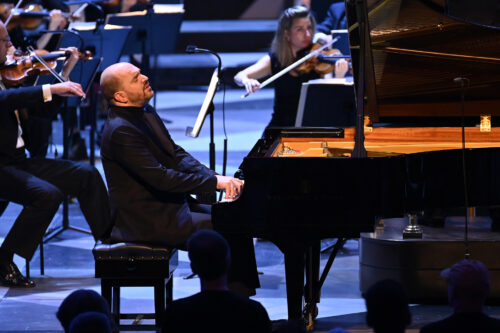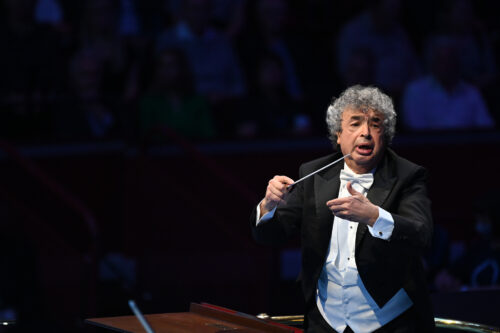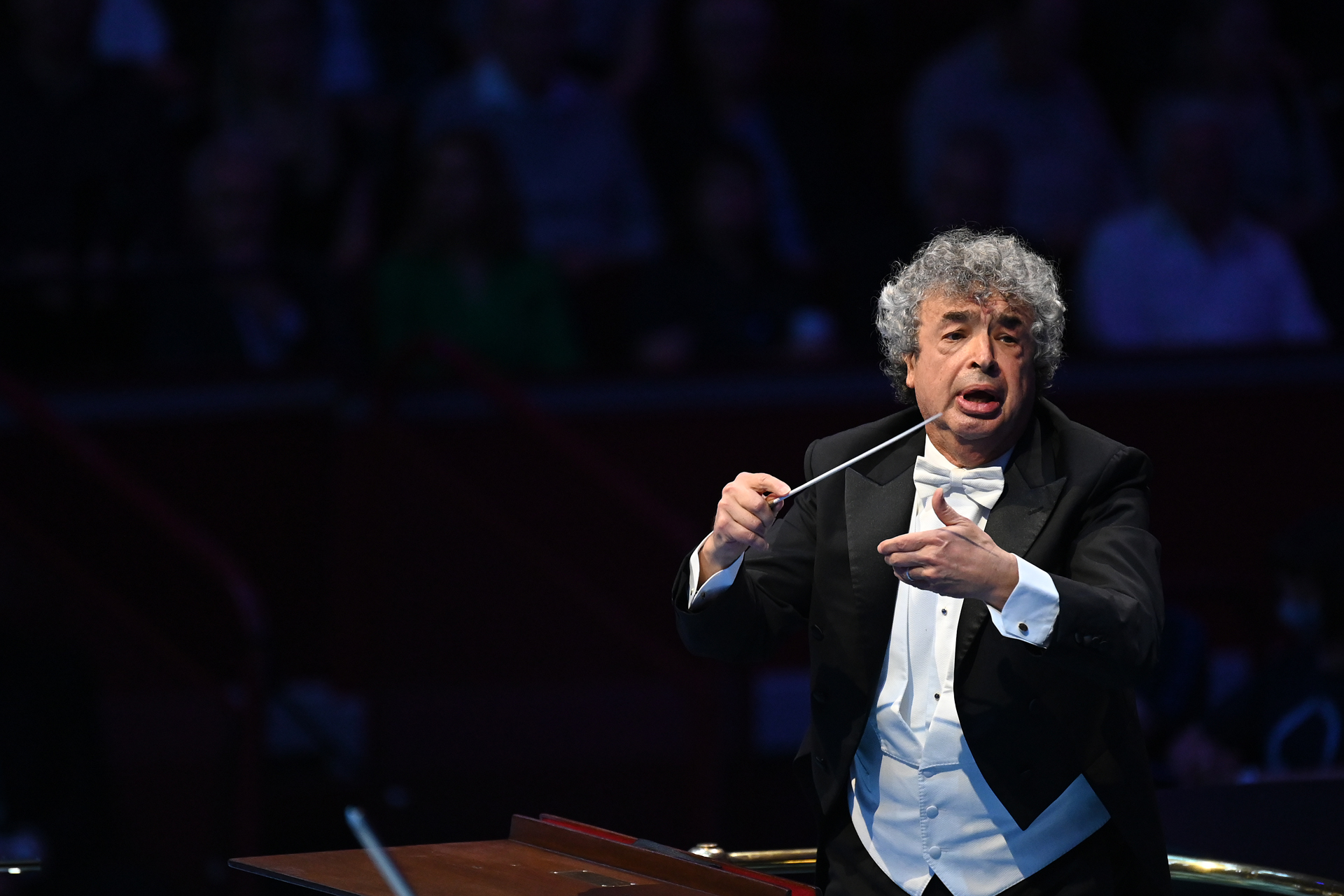
 United Kingdom BBC Proms 2021 [21] – Beethoven, Schumann, Mendelssohn: Kirill Gerstein (piano), BBC Symphony Orchestra / Semyon Bychkov (conductor). Royal Albert Hall, London, 3.9.2021. (CC)
United Kingdom BBC Proms 2021 [21] – Beethoven, Schumann, Mendelssohn: Kirill Gerstein (piano), BBC Symphony Orchestra / Semyon Bychkov (conductor). Royal Albert Hall, London, 3.9.2021. (CC)

Beethoven – Coriolan Overture
Schumann – Piano Concerto
Mendelssohn – Symphony No. 3, ‘Scottish’
Just like the good old days: a symphony, an overture and a concerto. And yet not just any concert: the pairing of Semyon Bychkov and Kirill Gerstein is a known and admired quantity (click here), and how it shone here.
But first, Beethoven’s overture to Heinrich Joseph von Collin’s 1804 play Coriolan. Beethoven in hyper-dynamic, C minor mood, a dynamism alleviated by those wonderful, long-breathed contrastive melodies. Rarely have I heard the BBC Symphony Orchestra sound as well balanced as this. Bychkov’s fine grasp of Beethoven’s architecture meant the return to the opening octaves held all the power it should. A terrific beginning, the close resonating on beautifully.
The Schumann Piano Concerto is a popular piece at the BBC Proms (in excess of 100 performances). Gerstein is a performer of huge intellect, great sensitivity and integrity. A small pre-performance aspect of our times is that there is no longer applause for the leader playing the A for the orchestral tuning (the ‘heave-ho’ of the ceremonial lifting of the lid remains). For safety reasons, the tuning A natural now comes straight from the oboe.
The Schumann performance was full of joy, not least in the woodwind department (perhaps especially the solo oboe of Alison Teale and the solo clarinet of Richard Hosford). The dialogues between piano and orchestra – frequent in this concerto – were those of the most cordial of friends. From my seat in the stalls, it felt as if Gerstein was a touch bass light, but the BBC Radio 3 relay implies no such thing, so I assume this is an acoustic quirk of the Royal Albert Hall. How beautiful was Gerstein’s burnished tone; how strong were his double-octaves; how cantabile was his line. There was much chamber music here, whether in the piano/wind exchanges in the first movement or in the piano/string dialogue at the opening of the second. Both Gerstein and Bychkov revelled in Schumann’s metrical challenges, too (those three against twos in the finale), while Gerstein seul in the first movement cadenza was a force of Nature. This performance had it all, it just needed an encore, duly supplied: the Bach/Busoni Nun freut euch lieben Christen g’mein, BMV 734 (announced by Gerstein as ‘Rejoice, beloved Christians’ and also known as the Chorale prelude) in what is by far the finest performance I have heard, live or otherwise. Treble and bass were ultra-light against the longer-note chorale, itself at times with a bit of a skip in its step. Remarkable – the highlight of the entire evening, in fact.

Good to hear Mendelssohn’s ‘Scottish’ Symphony, though. We know how fine Bychkov is in the Romantic repertoire, particularly Tchaikovsky. One hopes Bychkov will record this symphony at some point – one can imagine the Czech Philharmonic, perhaps, luminous in this piece. Or, indeed, the BBC SO – itself full-toned, confident, expansive. In Bychkov’s hands, this was a four-movement symphonic poem, overtly evocative, full of beauty (not least in the stunning moulding of the opening phases). Throughout, Bychkov coaxed the orchestra into the perfect realisation of Mendelssohn’s individual soundworld in a full acknowledgement of Mendelssohn’s genius. Bychkov effected remarkably transparent textures, even in the stormier passages (all the more remarkable given that he eschewed antiphonal strings for a more traditional layout). This was a really affectionate performance, but also a most respectful one: there was not a hint of the hackneyed in the evocation of storms.
One has to mention clarinettist Richard Hosford again for his most nimble contribution to the Scherzo, a Gallic Midsummer Night’s Dream; and to the violins in general in the Adagio, moving as one in their silken cantabile. But how impressive, too, was Bychkov’s grasp of this slow movement, the rhythmic basis absolutely stable. It was left to the finale, another exercise in structural thought, to crown the experience, with Bychkov timing the ecstatic climax to perfection, robust, peasant-like dances all very much part of the mix before the aspirational, inspirational final melody ascended ever upwards (an earworm if ever there was one).
An evening of superb partnerships, then: Gerstein and Bychkov, and Bychkov and the BBC Symphony Orchestra. There’s a lot to be said for the good old days when served up like this.
Colin Clarke
